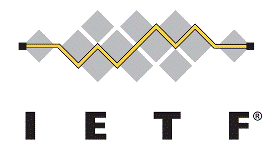RFPs and RFIs
The IASA Tao for Contracted Services
In all cases, the IASA needs to establish normal business relations with entities providing services
to support the IETF administrative function. While it is desirable that these relationships have the
maximum amount of transparency to the IETF community that can be reasonably obtained, this
should not in any way detract from the "normal business relationship" expectation.
This implies that:
- The IASA defines the service requirements (statement of work, service level agreement)
- The IASA and the service provider enter into a formal agreement based on those service
requirements
- The IASA judges whether it believes the service as performed is meeting stated requirements
- Service requirements may need to be revisited and adjusted in the normal course of events
throughout the life of the agreement with a given service provider
- Any change of service requirements will be considered in the light of expected impact on
costs and deliver-ability
- Agreements will be negotiated to reach a "fair price" for the services rendered within industry
standard norms. This means that while the IASA will work to manage expenses as reasonably
as possible, the IASA has no issue with the service provider making some reasonable industry
level of profit, as long as the previous conditions of costing are met.
In the above, "IASA" is used to mean the IAD and/or IAOC as appropriate as these work to ensure
the IETF’s administrative support needs are appropriately met.
The IASA is seeking:
- Ongoing discussion at a high level to determine whether or not a service provider understands
and can deliver the required service. Suggestions for adjusting the described/proscribed service
are appropriate, but it is up to the IASA to determine final selection of work items
- Ongoing discussion of options for how best to implement the set tasks, with a discussion of
trade-offs (cost, resources, delivery time-frame, etc.) in advance of implementation or
changes.
- Service providers that bring a high level of domain expertise and "value add" to the activity
- Service providers that have more core competency to perform the set tasks than exists within
the IETF organization itself (i.e., not participants, but the formal organization cluster)
The IASA is NOT seeking:
- A managed out source activity. That is, the IASA is not looking to provide all the executive
direction in such a manner that the service provider is merely acting as the organizational
home of the work and shipping the bills on to ISOC.
- Write-through service charging: "it doesn’t matter how much it costs, ISOC is paying the
bill".
- Service offerings bounded by what the IASA is willing to pay. The industry standard should
define the needed level of service offering, and the service provider should be setting a fair
price and working out (internally) how best to meet the service level requirements.


